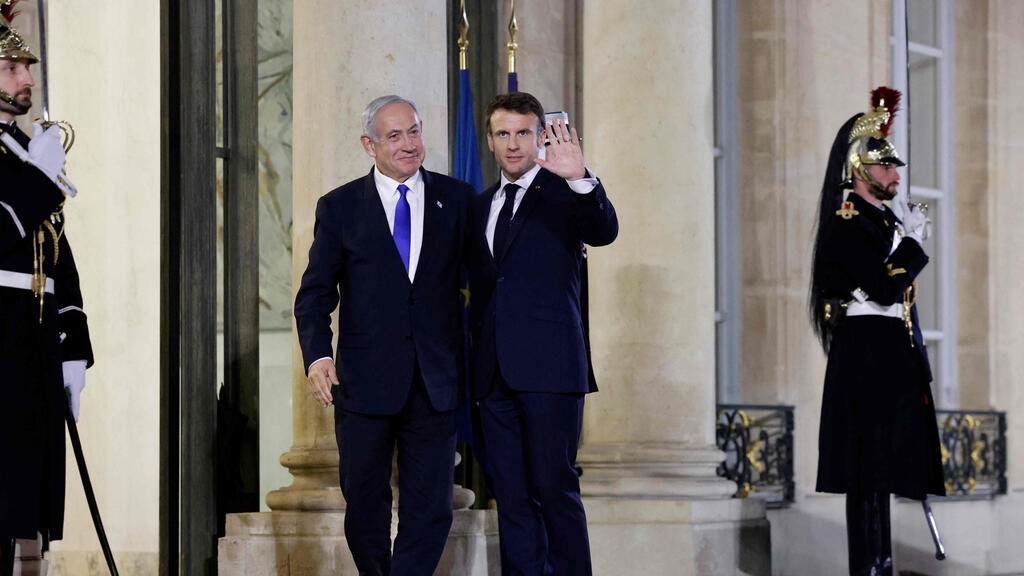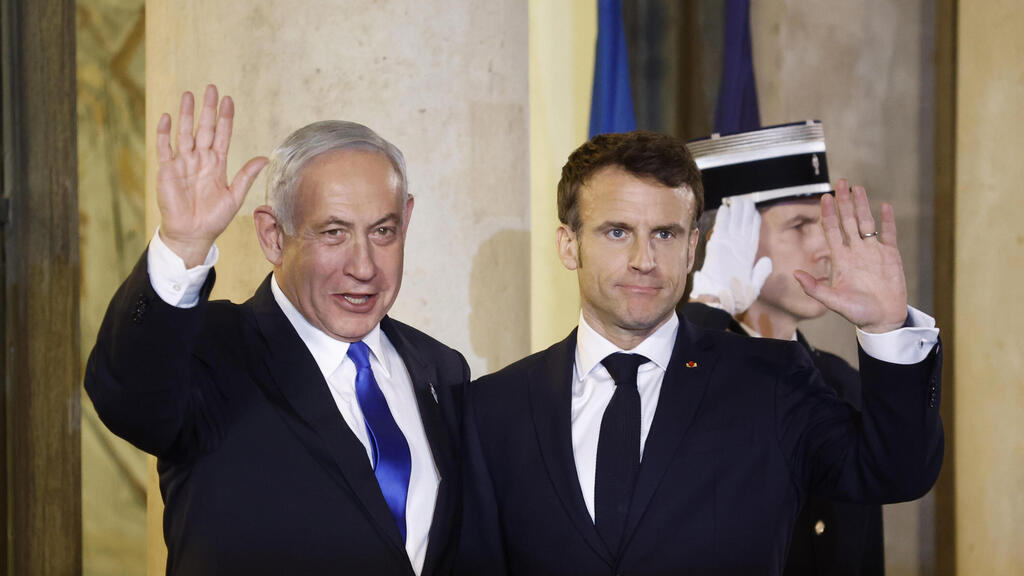Getting your Trinity Audio player ready...
Prime Minister Benjamin Netanyahu arrived Thursday evening in Paris for a two-day official visit, received Thursday evening by French President Emmanuel Macron, who warmly welcomed him on the forecourt of the Élysée Palace.
The French leader was delighted that "Netanyahu had chosen France to make his first visit outside the Middle East since his re-election" as Israel’s prime minister, stressing that this choice proved the "closeness between the two countries and the two peoples".
Macron expressed France's solidarity with Israel after the terrorist attack last Friday in Jerusalem, which claimed the lives of seven Israelis. At the same time, he reaffirmed his concern at the renewed violence in the West Bank and the growing tensions between Israelis and Palestinians, recalling the importance of avoiding any measures likely to fuel them.
"On both sides there is nothing to say or do about the Israeli-Palestinian issue, considered a frozen conflict with no future development," said Michaël Darmon, editorial writer at i24NEWS.
The French president welcomed the normalization of relations between Israel and several Arab States of the Middle East as a factor of stability and security in the region, but recalled that this dynamic will remain incomplete as long as it will not be accompanied by a "resumption of a political process towards a solution that meets the legitimate aspirations of both Palestinians and Israelis." Macron also took the opportunity to reiterate his desire to contribute to a resumption of dialogue between Israelis and Palestinians, a hand he has been trying to extend since the start of his first term, without much success.
"It's also a way for Netanyahu to show that he is still a credible partner and that he and Macron, who are ultimately the most senior officials in the democratic camp, can have a relationship that revives bilateral ties on the political front," Darmon noted.
Netanyahu and Macron also discussed regional crises, and in particular the Iranian nuclear program, which threatens Israel as well as France and Europe.
"What Netanyahu can get from this unity between France and Israel on the Iranian issue is to have a form of leniency with regard to the internal conflicts in Israel, in particular regarding planned reforms of the Israeli government", said Darmon.
Some rightly observe that the French president has refrained from openly criticizing Netanyahu on his plans to reform the judicial system, as Antony Blinken took the liberty of doing earlier this week. However, French newspaper Le Monde reported that behind closed doors Macron warned the Israeli leader that the reform could harm the country’s democracy.
The two men finally discussed their respective efforts to deal with the consequences of the conflict in Ukraine. They also expressed their desire to deepen the strategic partnership that binds the two countries, and to strengthen the bilateral relationship in all areas.
"It's also a way for Netanyahu to show that he is still a credible partner and that he and Macron, who are ultimately the most senior officials in the democratic camp, can have a relationship that revives bilateral ties on the geostrategical level", concluded Darmon.



